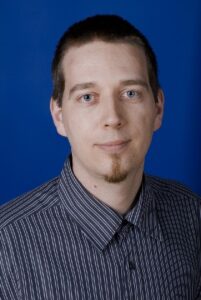
Simulation and Behaviour Analysis Approaches of the Cloud-to-Thing Continuum
Juni 23 @ 8:30 - 10:00
TEWI Colloquium
Ph.D. Attila Kertesz | University of Klagenfurt | University of Szeged
Monday, June 23, 2025 at 08:30 a.m. @ S.2.69, University of Klagenfurt
Abstract: The latest evolution in Information Technology has led to the appearance of the Cloud-to-Thing Continuum, which combine the Internet of Things (IoT), Cloud Computing and Fog Computing. IoT systems are composed of possibly up to billions of smart devices, sensors and actuators connected through the Internet, and these components continuously generate large amounts of data. Cloud and fog services assist the data processing and storage needs of IoT applications, while Blockchain services can support accountability and verification of certain actions. The location and behaviour of IoT devices can change dynamically, which calls for multicriteria optimization methods to be applied during the execution of these applications. The investigation and detailed analysis of such application and their underlying complex systems can be fostered by simulation solutions.
The DISSECT-CF-Fog simulator can be used to model a complex IoT-Fog-Cloud infrastructure, and a generic IoT application on top of it. It also supports the analysis of arbitrary actuator events and mobility capabilities of IoT devices in IoT-Fog-Cloud systems. The main metrics it considers for system analysis: execution time, resource/network usage, energy usage, and service pricing.
This talk presents a general overview of the simulation capabilities of the DISSECT-CF-Fog simulator, and discusses them through various application scenarios. It recent development directions will also be presented, which are triggered by the issues raised by the Swarmchestrate EU-funded research project. It aims to combine emerging technologies to create a completely decentralised autonomous and self-organised application management system suitable to manage hyperdistributed applications that span across different layers of the dynamic compute continuum.
 Bio: Attila Kertesz is an associate professor leading the IoT Cloud research group at the Department of Software Engineering, University of Szeged, Hungary. He is also the Vice Dean of Public Relations of the Faculty of Science and Informatics of the University of Szeged. He graduated as a program-designer mathematician in 2005, received his Ph.D. degree at the SZTE Doctoral School of Computer Science in 2011, habilitated at the University of Szeged in 2017, and received the Doctor of the Academy (DSc) degree of the Hungarian Academy of Sciences in 2024. His research interests include the federative management of Blockchain, IoT, Fog and Cloud systems, and interoperability issues of distributed systems in general. He is the European PI of the SO-SMART EIG-CONCERT EU-Japan project, and a group leader at the Swarmchestrate EU HORIZON project. He has coordinated the FogBlock4Trust sub-grant project of the TruBlo EU H2020 project, and participated in several successful national and European projects, including NKFIH-FK 131793, GINOP Internet of Living Things, COST Actions CA19135, CA17136 and IC1304, ENTICE EU H2020, COST IC0805, SHIWA, S-Cube EU FP7 NoE and the CoreGRID EU FP6 NoE. He has more than 150 publications with more than 2500 citations.
Bio: Attila Kertesz is an associate professor leading the IoT Cloud research group at the Department of Software Engineering, University of Szeged, Hungary. He is also the Vice Dean of Public Relations of the Faculty of Science and Informatics of the University of Szeged. He graduated as a program-designer mathematician in 2005, received his Ph.D. degree at the SZTE Doctoral School of Computer Science in 2011, habilitated at the University of Szeged in 2017, and received the Doctor of the Academy (DSc) degree of the Hungarian Academy of Sciences in 2024. His research interests include the federative management of Blockchain, IoT, Fog and Cloud systems, and interoperability issues of distributed systems in general. He is the European PI of the SO-SMART EIG-CONCERT EU-Japan project, and a group leader at the Swarmchestrate EU HORIZON project. He has coordinated the FogBlock4Trust sub-grant project of the TruBlo EU H2020 project, and participated in several successful national and European projects, including NKFIH-FK 131793, GINOP Internet of Living Things, COST Actions CA19135, CA17136 and IC1304, ENTICE EU H2020, COST IC0805, SHIWA, S-Cube EU FP7 NoE and the CoreGRID EU FP6 NoE. He has more than 150 publications with more than 2500 citations.

